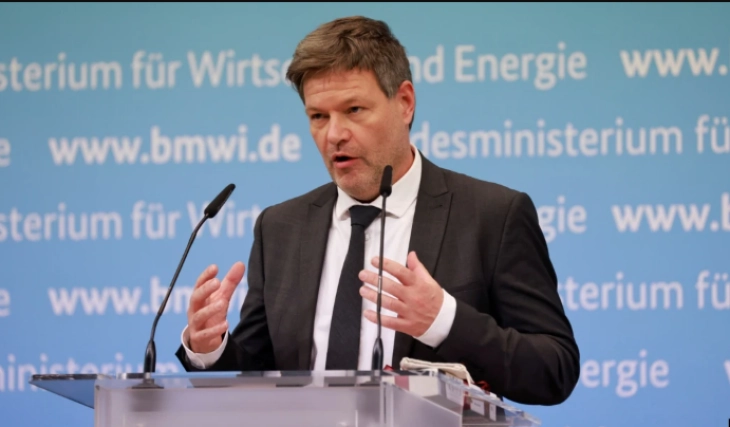Economy minister says Germany can do without Russian gas

Berlin, 23 February 2022 (dpa/MIA) - Germany can do without Russian gas if necessary, German Economy Minister Robert Habeck said on Wednesday, as the country assessed the impact of the Ukraine conflict and the suspension of the Nord Stream gas pipeline on Europe's largest economy.
"As far as the short-term price increases and the burden on consumers and businesses are concerned, we will provide relief elsewhere," the Green politician said on Deutschlandfunk radio early on Wednesday.
"We can hardly intervene in the world market price of gas or oil. But we will abolish the EEG levy [charged to electricity consumers to help pay for the country's transition to renewable energy]. We will counteract it with social policy."
The most important thing is that Germany has enough gas and the supply is secure, Habeck said.
Asked if Germany could do without Russian gas completely, Habeck replied, "Yes, it can." However, he qualified this comment by saying that this would mean significantly higher prices.
Germany's concerns about the impact of the Ukraine crisis on energy supplies and prices were exacerbated on Tuesday when Chancellor Olaf Scholz put the Nord Stream 2 gas pipeline from Russia on hold.
The multibillion-euro project was expected to provide millions of households in Germany and Europe with natural gas. Scholz ordered Habeck's ministry to reassess the project's security of energy supply in light of the Russian moves in Ukraine.
This reassessment would take a long time, according to government spokesperson Steffen Hebestreit. When asked whether it would take weeks, months or years, he replied: "We're not talking about weeks."
The pipeline is finished and filled with gas, but was awaiting a final certification from German regulators before going into full operation.
The Ukrainian ambassador to Germany, Andrij Melnyk, welcomed the sanctions against Russia, including the stop to Nord Stream - but said on Deutschlandfunk that "now it might be too late."
Russia's moves meant the failure of diplomatic efforts of recent years, including Germany's mediation, to resolve Ukraine-Russia tensions, he told the broadcaster on Wednesday.
"We are standing alone. Now it's up to Germany to decide what to do ... Where is the diplomacy now? We are alone. We have the feeling that we are being sacrificed to this pacifism," he said.
The German government's trans-Atlatic coordinator, Peter Beyer, similarly criticized the government for not acting sooner.
"I wonder honestly: Why did it have to wait so long, until there was war in east Ukraine?" he asked on public broadcaster Phoenix.
The conservative politician accused the government of hiding behind an administrative process when it put the project on hold, rather than making a clear political statement.
When he made the announcement on Tuesday, Scholz referred only to "a dramatic change in the situation," adding that "under the present circumstances, certification is not possible."
Other political opponents have slammed the halt on Nord Stream 2 for other reasons.
Alice Weidel from the far-right Alternative for Germany (AfD) said that as a consequence of ending Nord Stream and the German exit from nuclear power "we will have to import more expensive nuclear energy from our European neighbours."
Meanwhile, a foundation linked to and funded by millions of euros from Nord Stream said it would no longer support the project.
No further work would be carried out through the foundation, said its head Erwin Sellering, who is a former premier of the north-eastern state of Mecklenburg-Vorpommern.







